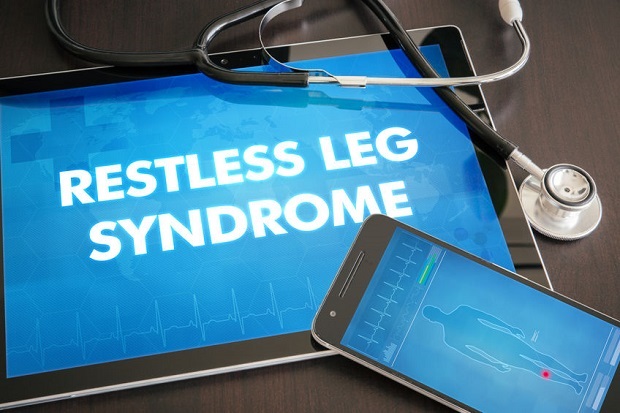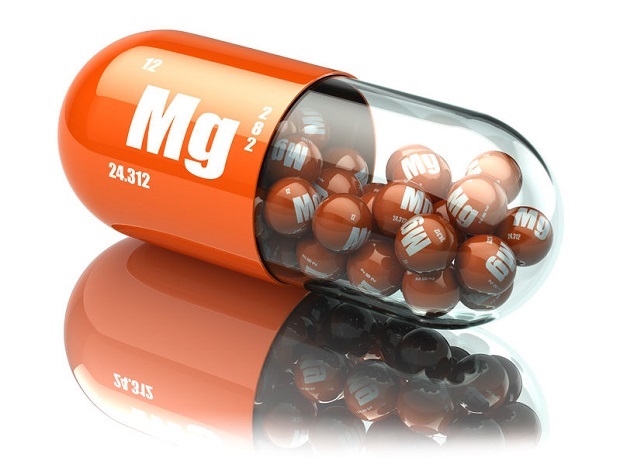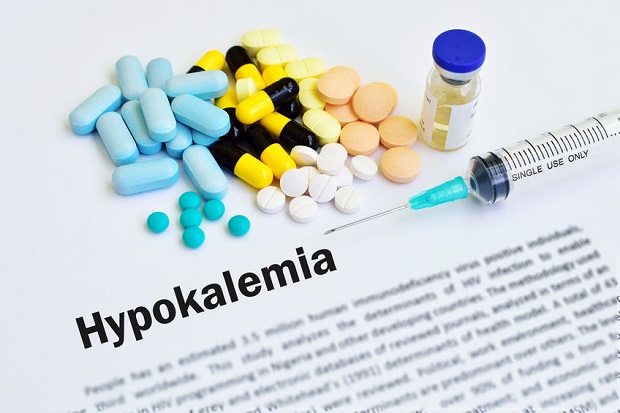
Can a Magnesium Deficiency Cause Insomnia?
A magnesium deficiency can cause insomnia. In fact, one of the early symptoms of magnesium deficiency is insomnia. In light of the fact that some statistics report that nearly 75% of Americans do not get enough magnesium in their diets, the US National Institutes of Health report that a true magnesium deficiency in healthy individuals is rare but can occur due to certain illnesses such as low blood levels of calcium, malabsorption, burns, and surgery. Certain medications can also cause a magnesium deficiency. [1][2]
Jump Ahead
- How Magnesium Helps Sleep
- Restless Leg Syndrome and Magnesium
- The Magnesium Cocktail Sleep Aid
- Milk – The Magnesium Sleep Aid
- Glossary of Terms
- Expert Opinion
- Resources
How Magnesium Helps Sleep

Several research studies have indicated that magnesium is related to and beneficial during different sleep cycle stages. One study that examined the direct effects of magnesium on the sleep-wakefulness cycle fed rats a diet deficient in magnesium and found that after a period of 6-7 weeks, the rats demonstrated a significant increase in wakefulness. After nine weeks, they experienced an increase in neuronal excitability resulting in light and disorganized sleep. When the magnesium levels were restored, sleep patterns returned to normal. [3]
Another study involving healthy adult women who were marginally magnesium deprived found that the deficiency resulted in increased brain electrical activity, possibly contributing to sleep disorders. [4] In a separate study, the effects of low magnesium due to alcoholism were treated with magnesium supplementation resulting in decreased time to fall asleep as well as better sleep quality. [5]
Restless Leg Syndrome and Magnesium

Restless leg syndrome (RLS) is a disorder that causes a sensation of discomfort that induces a strong urge to move the legs. Because RLS can make it difficult to fall asleep and stay asleep, The International Classification of Sleep Disorders has identified the condition as a sleep disorder called dyssomnia. [6] If insomnia is caused by RLS, magnesium has been identified as a possible source of relief. One small study measured the effects of magnesium therapy for RLS and found that 7 of the 10 participants showed marked improvement in sleep patterns with fewer awakenings. [7]
The Magnesium Cocktail Sleep Aid

An intriguing study on the effects of magnesium combined with melatonin and zinc demonstrated remarkable results in combating insomnia. In the study, 43 elderly insomnia patients were given a food supplement that included 225 mg of magnesium, 11.25 mg of zinc, and 5 mg of melatonin mixed with 100 grams of pear pulp one hour before bedtime for eight weeks. The ‘cocktail’ resulted in a marked improvement in falling asleep faster, quality of sleep, total sleep time, hangover on awakening from sleep, and alertness upon awakening. [8]
Milk – The Magnesium Sleep Aid

A glass of warm milk before bed has a long history as a natural sleep aid. This old-folk remedy may just have scientific value. Just one cup of milk contains 27 mg of magnesium, about 7% of your daily requirements. [9] Milk also contains tryptophan, which the body uses to produce serotonin. Serotonin is believed to induce healthy sleep and a stable mood. [10]
Glossary of Terms

Double-Blind: Term used to describe a study in which both the investigator or the participant is blind to (unaware of) the nature of the treatment the participant is receiving.
Medicinenet.com
Dyssomnias: are sleep disorders that are characterized by difficulty falling asleep, difficulty staying asleep, or excessive sleepiness. There are three groups in this category including: intrinsic sleep disorders, extrinsic sleep disorders, and circadian rhythm sleep disorders.
Malabsorption: is usually the inability to absorb certain sugars, fats, proteins, or vitamins from food. It can also involve general malabsorption of food.
Medline Plus
Neuronal: Any of the impulse-conducting cells that constitute the brain, spinal column, and nerves, consisting of a nucleated cell body with one or more dendrites and a single axon. Also called nerve cell.
TheFreeDictionary.com
Placebo: a simulated or otherwise medically ineffectual treatment for a disease or other medical condition intended to deceive the recipient.
Wikipedia.com
Serotonin: acts as a neurotransmitter, a type of chemical that helps relay signals from one area of the brain to another.
WebMD
Expert Opinion

“In order to maintain proper levels of magnesium, taking a supplement may not be the best idea. The body needs a steady supply of magnesium throughout the day. Most supplements will not contain more than 100 mg of magnesium because of bulk. However, because magnesium is so plentiful, a diet rich in magnesium is the best way to keep your stores up, and it’s easy to maintain.”
Daily Dose: Magnesium DoctorOZ.com
Resources
- [1] Guerrera, Mary P. “Therapeutic Uses of Magnesium.” American Family Physician, vol. 80, no. 2, 15 July 9, pp. 157–162., https://www.aafp.org/afp/2009/0715/p157.html.
- [2] Medline Plus-US National Library of Medicine – “Magnesium in Diet.”
- [3] Depoortere, H. “Effects of Magnesium-deficient Diet on Sleep Organization in Rats.” Neuropsychobiology. 1993; Volume: 27; No: 4; Pages: 237-245., http://www.ncbi.nlm.nih.gov/pubmed/8232845
- [4] Penland, James J. “Quantitative analysis of EEG effects following experimental marginal magnesium and boron deprivation.” Magnesium Research, vol. 8, no. 4, 1995, pp. 341-358., https://naldc.nal.usda.gov/download/45417/PDF
- [5] Hornyak, M. “Magnesium Treatment of Primary Alcohol-Dependent Patients During Subacute withdrawal: an Open Pilot Study with Polysomnography.” Alcoholism, Clinical and Experimental Research, vol. 28, no. 11, 2004, pp. 1702-1709. http://www.ncbi.nlm.nih.gov/pubmed/15547457
- [6] The International Classification of Sleep Disorders, Revised: Diagnostic and Coding Manual. American Sleep Disorders Association, 2001.
- [7] Hornyak, M. “Magnesium Therapy for Periodic Leg Movements-related Insomnia and Restless Legs Syndrome: an Open Pilot Study.” Sleep. 1998; Volume: 21; No: 5, Pages: 501-505
- [8] Rondanelli, Mariangela, et al. “The Effect of Melatonin, Magnesium, and Zinc on Primary Insomnia in Long-Term Care Facility Residents in Italy: A Double-Blind, Placebo-Controlled Clinical Trial.” Journal of the American Geriatrics Society, vol. 59, no. 1, 2011, pp. 82–90., doi:10.1111/j.1532-5415.2010.03232.x.
- [9] Office of Dietary Supplements – “Magnesium.”
- [10] Medline Plus – “Tryptophan.”
DISCLAIMER: THIS WEBSITE DOES NOT PROVIDE MEDICAL ADVICE
The information, including but not limited to text, graphics, images, and other material on this website, is for informational purposes only. No material on this site is intended to be a substitute for professional medical advice, diagnosis, or treatment. Always seek the advice of your physician or other qualified healthcare providers with any questions you may have regarding a medical condition or treatment before undertaking a new healthcare regimen, and never disregard professional medical advice or delay in seeking it because of something you have read on this or any other website.




